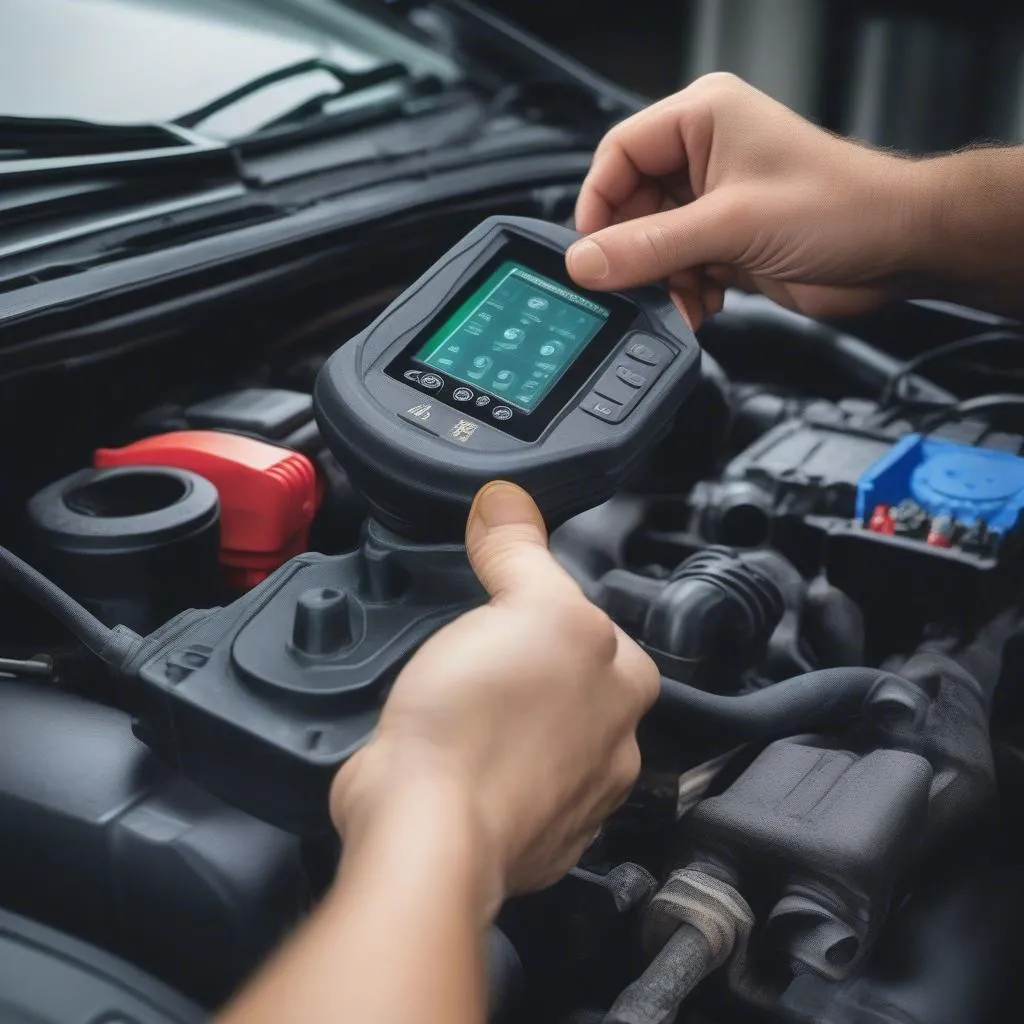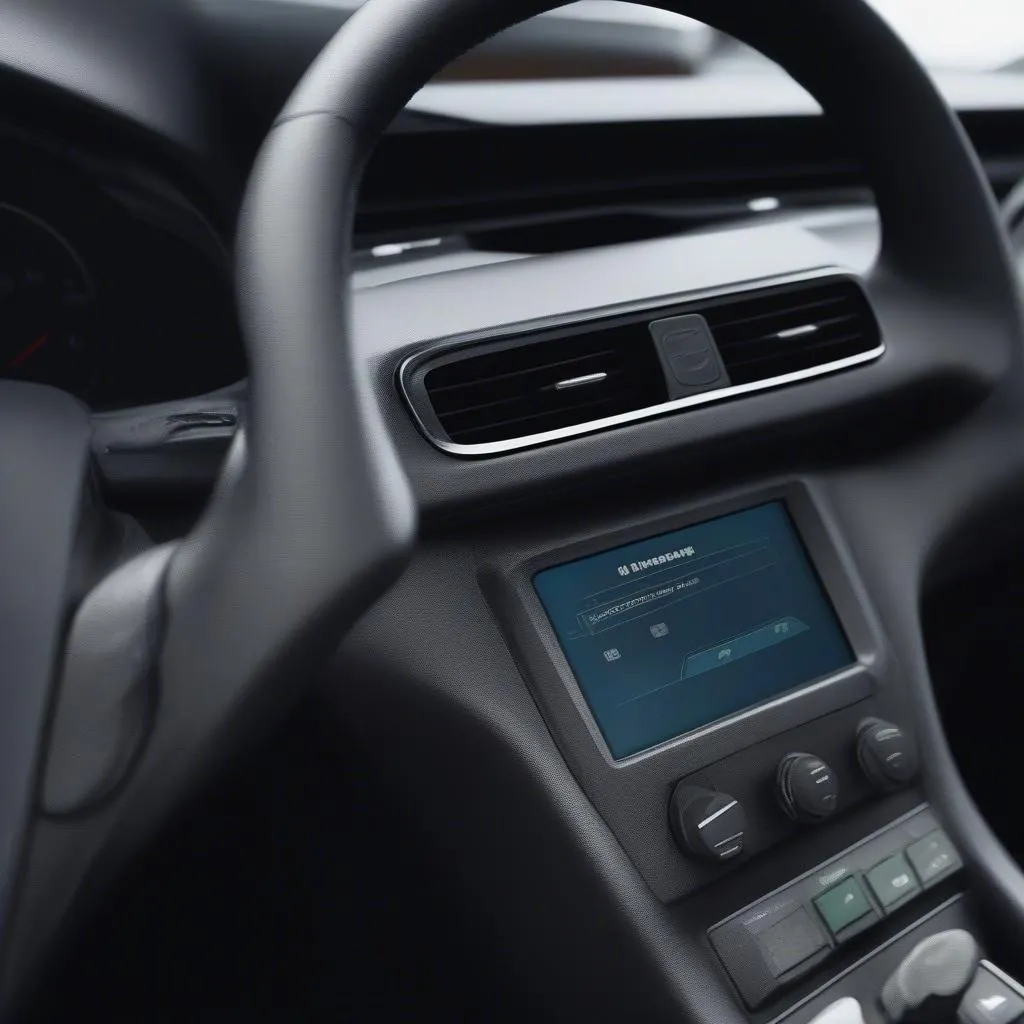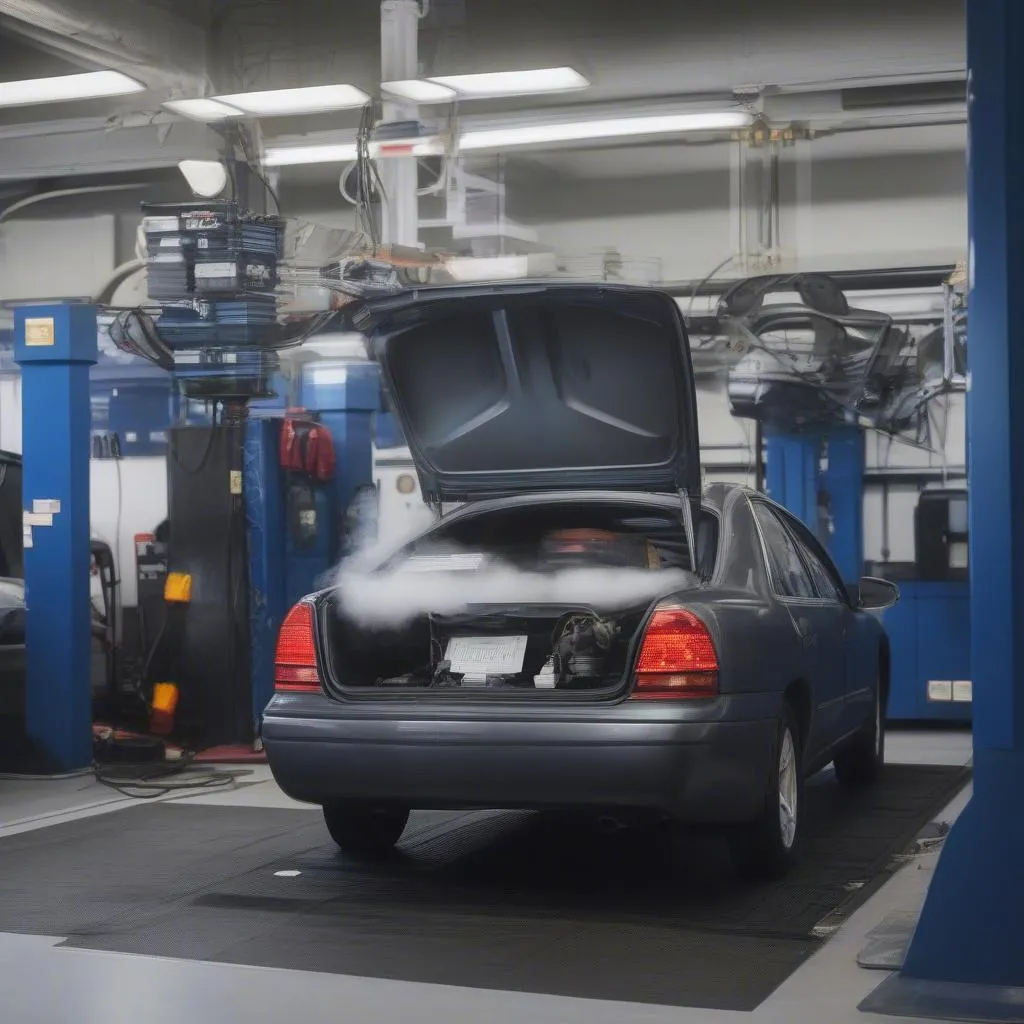Imagine this: you’re cruising down the highway, enjoying the open road, when suddenly, your car starts making strange noises. Your heart sinks – you know something isn’t right. You pull over, take a deep breath, and wonder what’s next. This is where an Obd Check comes in, acting as your car’s own personal doctor, diagnosing issues before they become major problems.
What is an Obd Check?
The OBD (On-Board Diagnostics) system is a computer system built into most modern cars (1996 and newer) that monitors the performance of various components, like the engine, transmission, and emissions system. Think of it like a black box in your car, constantly keeping tabs on its vital signs. It’s a critical part of ensuring your car runs smoothly and efficiently, and also plays a key role in environmental regulations.
An OBD check involves connecting a diagnostic scanner, like a Dealer Scanner for European cars, to a port typically located under your dashboard. This port acts as a gateway to your car’s internal computer system. The scanner then reads data from the OBD system, providing valuable insights into the car’s health.
What does an Obd Check Tell You?
An OBD check can reveal a treasure trove of information about your car’s health. Here are some key details it can unearth:
Engine Trouble Codes (DTCs)
This is the bread and butter of an OBD check. DTCs are essentially error messages generated by the OBD system when it detects a malfunction in a specific component. These codes are standardized across different car manufacturers and help pinpoint the exact issue, making it easier for mechanics to diagnose and fix problems.
For example, if your car is running rough, an OBD check might reveal a DTC related to a faulty oxygen sensor or an issue with the ignition system.
Real-Time Data
Beyond DTCs, an OBD check can also display real-time data from various sensors in your car, like engine speed, coolant temperature, and fuel pressure. This real-time data can help mechanics identify performance issues that might not have triggered a DTC but are still impacting your car’s efficiency or overall performance.
Emissions Status
OBD checks are also crucial for emissions monitoring. They can assess the performance of key emissions components, like the catalytic converter and exhaust gas recirculation (EGR) system, ensuring your car meets environmental standards.
Why You Should Get an Obd Check Regularly
Just like humans need regular checkups, cars benefit from regular OBD checks. Here’s why:
Early Problem Detection
Catching problems early can save you time, money, and frustration in the long run. An OBD check can identify potential issues before they escalate into major repairs, saving you from costly breakdowns or even accidents. Think of it as an early warning system for your car.
Maintaining Performance
Regular OBD checks can help ensure your car runs at its best. By identifying and addressing minor issues early on, you can prevent performance degradation and maintain optimal fuel efficiency.
Meeting Emissions Standards
Many states require regular emissions tests for older vehicles. An OBD check can help you stay compliant with these regulations and avoid potential fines.
How Often Should You Get an Obd Check?
There’s no one-size-fits-all answer to this question. It depends on factors like the age and make of your car, driving habits, and maintenance history. However, a good rule of thumb is to get an OBD check at least once a year, or whenever you notice any unusual performance issues.
Where Can You Get an Obd Check?
You can get an OBD check performed at several places:
Auto Repair Shops
Most auto repair shops offer OBD checks as part of their services. They often have the latest diagnostic scanners and experienced mechanics who can interpret the results and provide valuable advice.
DIY Obd Checkers
You can also perform an OBD check yourself using a DIY OBD checker, available at most auto parts stores. These devices are relatively affordable and easy to use, making them a great option for those who like to tinker with their cars.
Smartphone Apps
Several smartphone apps are available that can read OBD data using a Bluetooth OBD adapter. These apps offer convenience and can provide valuable insights into your car’s health, but they may not be as comprehensive as dedicated diagnostic scanners.
Common Obd Check Questions
“I got an Obd Check, and it says ‘P0171’ – What does that mean?”
A P0171 code usually indicates a problem with the fuel/air mixture in your engine. This could be due to a faulty oxygen sensor, a leak in the intake manifold, or a problem with the fuel injectors. It’s best to consult with a mechanic to get a proper diagnosis and repair.
“Do I need to get an Obd Check before my annual emissions test?”
While many states require emissions testing, some may have specific requirements about OBD checks. It’s best to check with your local DMV or emissions testing center for their specific requirements.
“What happens if I ignore an Obd Check warning?”
Ignoring an OBD check warning can lead to more serious problems down the line. A minor issue that could have been easily fixed may escalate into a major repair, causing significant damage to your car and costing you a lot of money.
“Can an Obd Check tell me if I need an oil change?”
While an OBD check can monitor engine health, it doesn’t directly indicate the need for an oil change. Refer to your car’s owner’s manual for recommended oil change intervals.
Obd Check: Your Car’s Silent Partner
The OBD system is a vital component of modern vehicles. It’s a silent partner that monitors your car’s health, alerting you to potential issues before they become major problems. By understanding the importance of OBD checks and getting them performed regularly, you can ensure your car stays in top condition, saving you time, money, and frustration in the long run.
 OBD Check Diagnostic Tool
OBD Check Diagnostic Tool
 Car Dashboard OBD Port
Car Dashboard OBD Port
 Car Emissions Test
Car Emissions Test
If you have any questions about OBD checks or need help with your car’s diagnostics, contact us at +84767531508. Our team of certified auto mechanics is available 24/7 to provide expert guidance and support. We can help you understand your OBD results, troubleshoot potential issues, and keep your car running smoothly for years to come.
Feel free to leave a comment below with any further questions or share your own experiences with OBD checks! We’d love to hear from you!